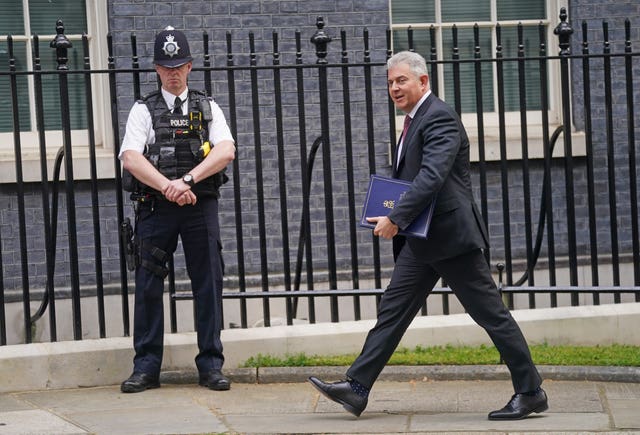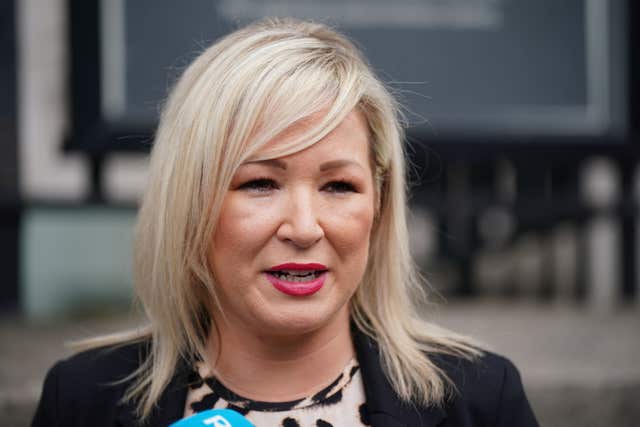
A “whitewash” of Troubles-era crime will not promote reconciliation, a victims’ campaigner has said.
Raymond McCord, whose son was killed by loyalists, described government proposals for dealing with the past as “disgusting”.
It is understood victims’ campaigners are considered mounting a legal challenge to the Northern Ireland Troubles (Legacy and Reconciliation) Bill which is to be introduced on Tuesday.
The Government plans will see immunity offered to some depending on their co-operation with a new independent commission for reconciliation and information recovery.
Today I will introduce legislation to address the legacy of the Troubles in Northern Ireland in a way that focuses on reconciliation, and provides more information to many victims and survivors who have already waited too long for answers ⬇️ https://t.co/g7PnOnHPCd
— Brandon Lewis (@BrandonLewis) May 17, 2022
The new body aims to help individuals and family members to seek and receive information about Troubles-related deaths and serious injuries.
It is also designed to produce an historical record of what is known in relation to every death that occurred during the Troubles.
The proposals leave open the route of prosecution if individuals are not deemed to have earned their immunity.
Mr McCord said the “clear message to victims was to f off”.
“It’s disgusting … Brandon Lewis says it’ll bring reconciliation, I don’t want to be reconciled with the murderers of my son, and neither does anyone in my family,” he told the PA news agency.
“Throwing litter in the street will be a bigger crime than mass murder … this whitewash of all these murders, to turn around and say it’ll bring reconciliation … I’m from the unionist community, I don’t need this to reconcile me with someone from the nationalist community because they are my friends.
“They were never my enemy.
“The proposals are unworkable and they (government) know it, and I will do everything in my power to stop these going through Parliament.”

Secretary of State Brandon Lewis described a “very difficult area”, adding: “It can be very painful for people.”
However he insisted the current system “isn’t working for people”, and that it should not take 50 years for people to get information about the death of their loved one.
Mr Lewis told the BBC the legislation would “give people a reason to come forward and a motivation to come forward that at the moment simply doesn’t exist”.
He said immunity would be judged by the independent body based on how people have engaged.
“That would be a matter for the independent body which will also have a judge involved in that process,” he said.
Sinn Fein Stormont leader Michelle O’Neill slammed the legislation, saying it “appears to be to cover up and close down any investigation into British state policy in Northern Ireland over the last 50 years”.

“In effect, they’re like pouring concrete over Britain’s role in the conflict,” she told the BBC.
“There should not be an amnesty for anybody, this is absolutely all about the British government trying to cover up their role in the conflict and for the record Sinn Fein has always cautioned against any proposals for a statute of limitations, and we have made that clear in all of the consultations that have happened to date.
“But what this proposal, and it is a British government proposal, the focus is on bringing forward an amnesty that supports a policy intent by them to cover up and to prioritise the wants of British military above the needs of victims, and we have many families that are sitting this morning that are really concerned, and they’re devastated because this is so far reaching.
“It’s not just about investigations, it’s about preventing live or pending legal processes, no access to legacy inquests, judicial review, civil cases, it’s about shutting down everything, and how is that building for a better future.
“That is not the way to deal with the past and create a better future.
“The impact of conflict is intergenerational and I see that every day and this really saddens me on the part of all those people who have been hurt and injured in the conflict.”
More than 3,500 people were killed during the Troubles, including over 1,000 members of the security forces.
Most of the deaths are attributed to republican paramilitaries while 30% are blamed on loyalist paramilitaries, and 10% attributed to the security forces.


Comments: Our rules
We want our comments to be a lively and valuable part of our community - a place where readers can debate and engage with the most important local issues. The ability to comment on our stories is a privilege, not a right, however, and that privilege may be withdrawn if it is abused or misused.
Please report any comments that break our rules.
Read the rules here